Stefano Germano
Computing CQ lower-bounds over OWL 2 through approximation to RSA
Jul 01, 2021
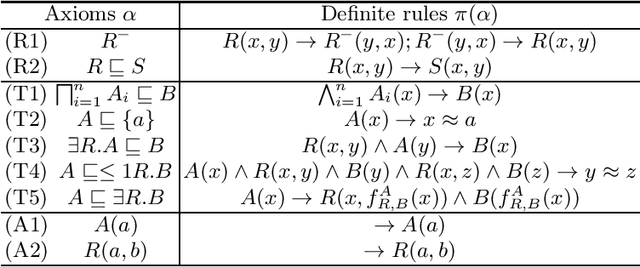
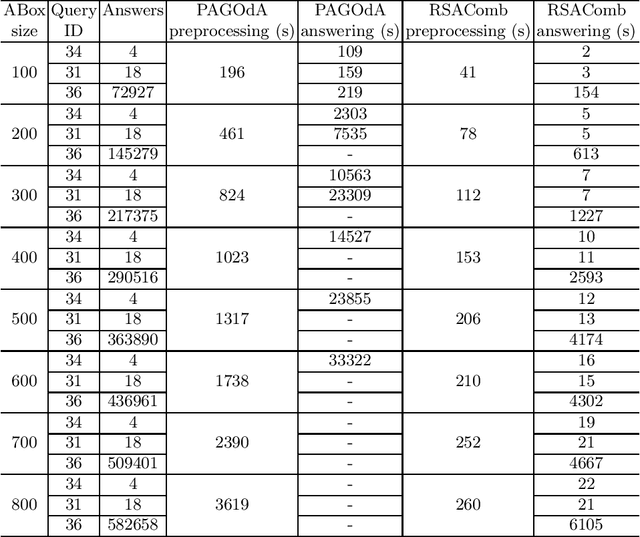
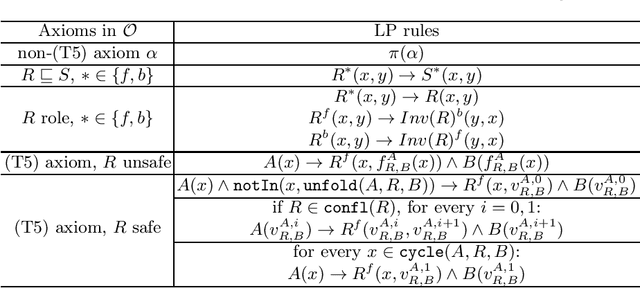
Abstract:Conjunctive query (CQ) answering over knowledge bases is an important reasoning task. However, with expressive ontology languages such as OWL, query answering is computationally very expensive. The PAGOdA system addresses this issue by using a tractable reasoner to compute lower and upper-bound approximations, falling back to a fully-fledged OWL reasoner only when these bounds don't coincide. The effectiveness of this approach critically depends on the quality of the approximations, and in this paper we explore a technique for computing closer approximations via RSA, an ontology language that subsumes all the OWL 2 profiles while still maintaining tractability. We present a novel approximation of OWL 2 ontologies into RSA, and an algorithm to compute a closer (than PAGOdA) lower bound approximation using the RSA combined approach. We have implemented these algorithms in a prototypical CQ answering system, and we present a preliminary evaluation of our system that shows significant performance improvements w.r.t. PAGOdA.
LoIDE: a web-based IDE for Logic Programming - Preliminary Technical Report
Sep 15, 2017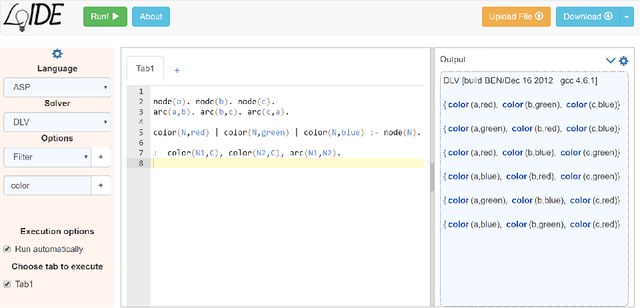
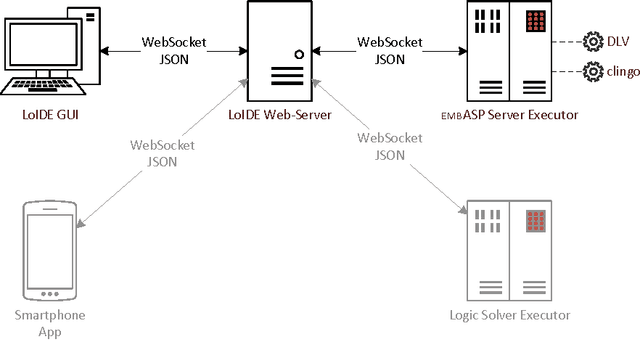
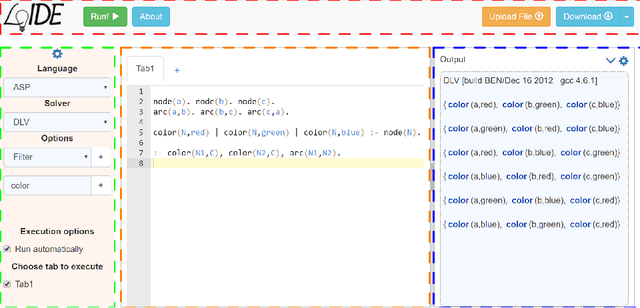
Abstract:Logic-based paradigms are nowadays widely used in many different fields, also thank to the availability of robust tools and systems that allow the development of real-world and industrial applications. In this work we present LoIDE, an advanced and modular web-editor for logic-based languages that also integrates with state-of-the-art solvers.
A Framework for Easing the Development of Applications Embedding Answer Set Programming
Jul 21, 2017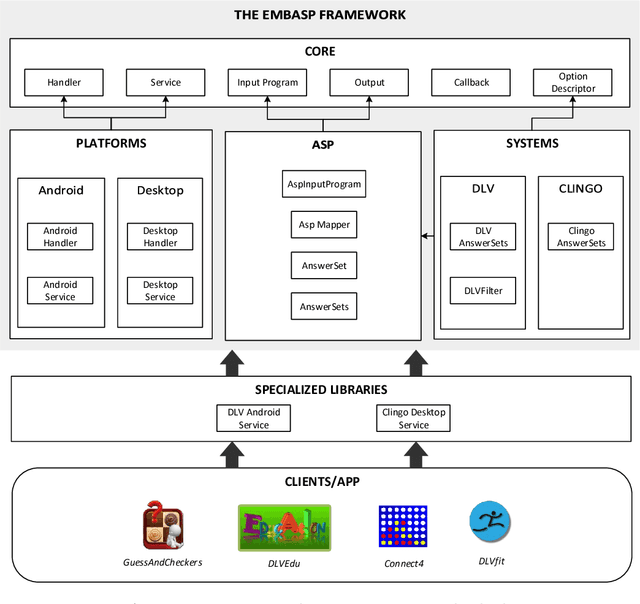
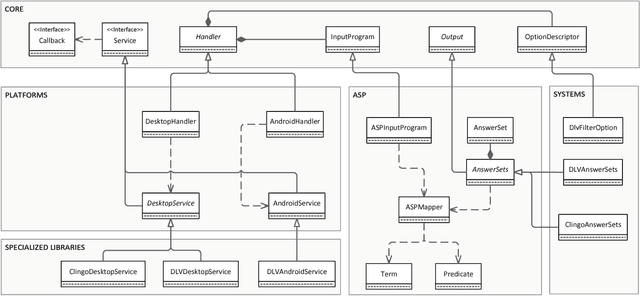
Abstract:Answer Set Programming (ASP) is a well-established declarative problem solving paradigm which became widely used in AI and recognized as a powerful tool for knowledge representation and reasoning (KRR), especially for its high expressiveness and the ability to deal also with incomplete knowledge. Recently, thanks to the availability of a number of robust and efficient implementations, ASP has been increasingly employed in a number of different domains, and used for the development of industrial-level and enterprise applications. This made clear the need for proper development tools and interoperability mechanisms for easing interaction and integration with external systems in the widest range of real-world scenarios, including mobile applications and educational contexts. In this work we present a framework for integrating the KRR capabilities of ASP into generic applications. We show the use of the framework by illustrating proper specializations for some relevant ASP systems over different platforms, including the mobile setting; furthermore, the potential of the framework for educational purposes is illustrated by means of the development of several ASP-based applications.
 Add to Chrome
Add to Chrome Add to Firefox
Add to Firefox Add to Edge
Add to Edge